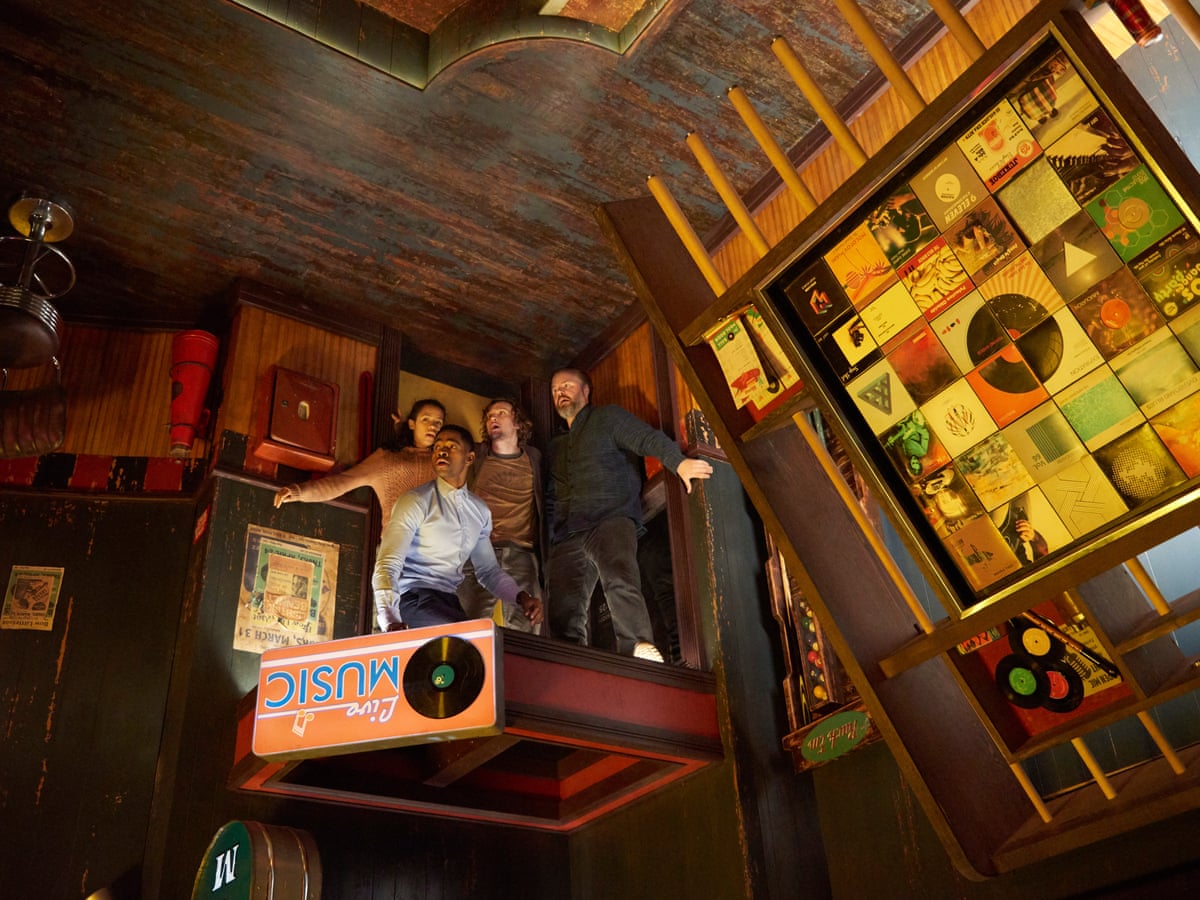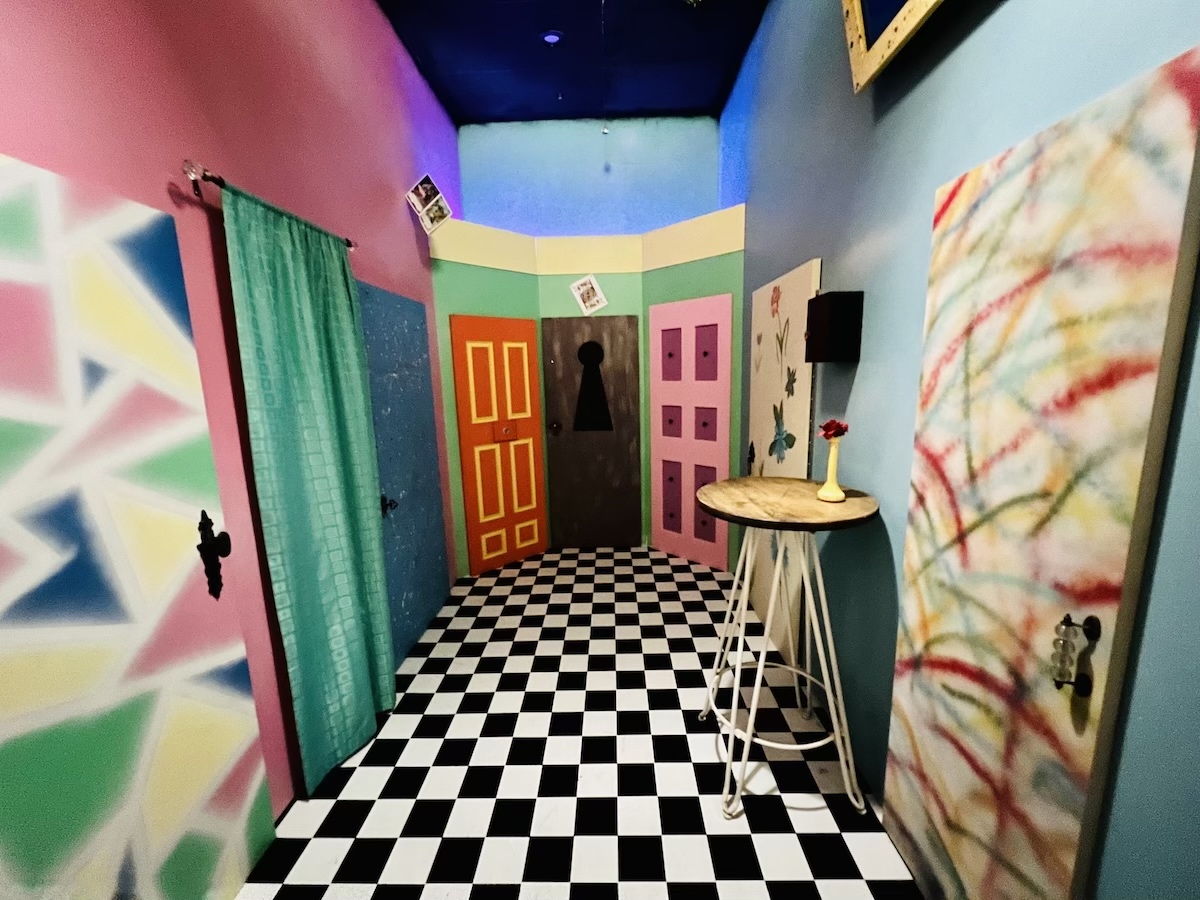Team Approaches: Just How to Team up Successfully in a Retreat Area
Teams need to proactively listen to each participant's insights, appoint functions that straighten with private strengths, and maintain routine check-ins to ensure emphasis and prevent redundancy. By promoting an environment that values cohesion and adaptability, groups can considerably enhance their effectiveness and success rates.
Establish Clear Communication

To facilitate clear communication, it is important to assign a central point of call for details circulation. This function involves summing up findings and proposed approaches to make sure everyone stays on the exact same web page. Furthermore, taking on an organized method to conversations can prevent chaotic exchanges. Short, concentrated updates from each team member can keep the team informed without frustrating them with details - best escape room.

Appoint Functions Purposefully
While clear communication establishes the foundation for reliable team effort, appointing functions purposefully makes sure that each staff member's toughness are used effectively. In a retreat area situation, the time-sensitive and complex nature of difficulties necessitates a well-organized technique to task delegation. By recognizing and leveraging specific competencies, groups can optimize their analytical capabilities and enhance general efficiency.
First, examine the one-of-a-kind abilities and characteristics of each individual. Somebody with a keen eye for detail may succeed in finding surprise items, while a sensible thinker could be better suited to resolving problems. It's equally vital to have a leader that can oversee progress, handle the timeline, and make crucial telephone calls when necessary. This role usually needs strong organizational and social abilities.
2nd, make certain that roles are flexible and versatile. As new difficulties emerge, the team has to be able to pivot, reallocating tasks as required. This flexibility assists maintain momentum and prevents traffic jams that could take place as a result of inflexible duty projects.
Ultimately, a calculated technique to role task not just makes the most of the strengths of each staff member but also cultivates a cohesive atmosphere, driving the team towards an effective getaway.
Use Diverse Abilities
Acknowledging and utilizing the varied skills within your team can significantly raise your performance in a getaway room. Each employee brings distinct toughness to the table, and efficiently leveraging these capacities can expedite analytical and enhance general effectiveness. A group participant with strong logical abilities might stand out at analyzing complex codes or patterns, while another with eager empirical capacities might promptly find concealed clues that others may overlook.
Motivate team members to voice their insights and ideas promptly, ensuring that all potential options are thought about. Furthermore, designating tasks that line up with each participant's strengths can stop traffic jams and make sure that progression is continual.
In addition, variety in abilities usually equates to diversity in assuming designs, which is important in a getaway area setup. While some difficulties may need logical reasoning and accuracy, others might profit from creative and association of ideas. By recognizing and leveraging this diversity, groups can attend to a wider series of obstacles better, thus raising their possibilities of a successful escape.
Manage Time Effectively

First, allocate preliminary minutes helpful hints for a fast study of the room. Identify visible puzzles and divide tasks based upon employee' strengths, ensuring that no one is idle. Set inner time checkpoints to examine development regularly; for example, objective to have half the problems solved by the mid-point of the game. This method can aid keep the team focused and avoid time from slipping away unnoticed.
Furthermore, avoid one-track mind. If a problem is taking also long, rotate staff member or relocate on to one more obstacle, returning later with fresh perspectives. Interaction is vital-- keep everybody upgraded on resolved problems and staying jobs to avoid repetitive initiatives.
Finally, use any tips or ideas sparingly but tactically - best escape room. Recognizing when to request assistance can conserve beneficial time. By adhering to these time monitoring concepts, teams can significantly improve their chances of an effective and pleasurable getaway space experience
Debrief and Show
Reflection is a vital element of group growth and improvement in the context of escape spaces. When the obstacle is finished, whether successfully or otherwise, it is essential for Our site the group to take part in a structured debriefing session. This procedure allows staff member to evaluate their efficiency, determine staminas, and identify locations for enhancement.
Begin the debrief by discussing what went well. Highlight certain circumstances of efficient communication, problem-solving, and collaboration. Recognizing these positive actions strengthens them and motivates their repeating in future obstacles.
Discuss minutes of confusion, miscommunication, or inadequate techniques. Motivate an open and useful discussion where group participants can share their perspectives without concern of criticism.
Verdict
In conclusion, effective cooperation in a getaway room is based upon clear communication, tactical role jobs, the reliable usage of diverse skills, and skilled time monitoring. By developing a cohesive and flexible team atmosphere, the likelihood of effectively addressing challenges and accomplishing the goal of running away the room is dramatically improved.